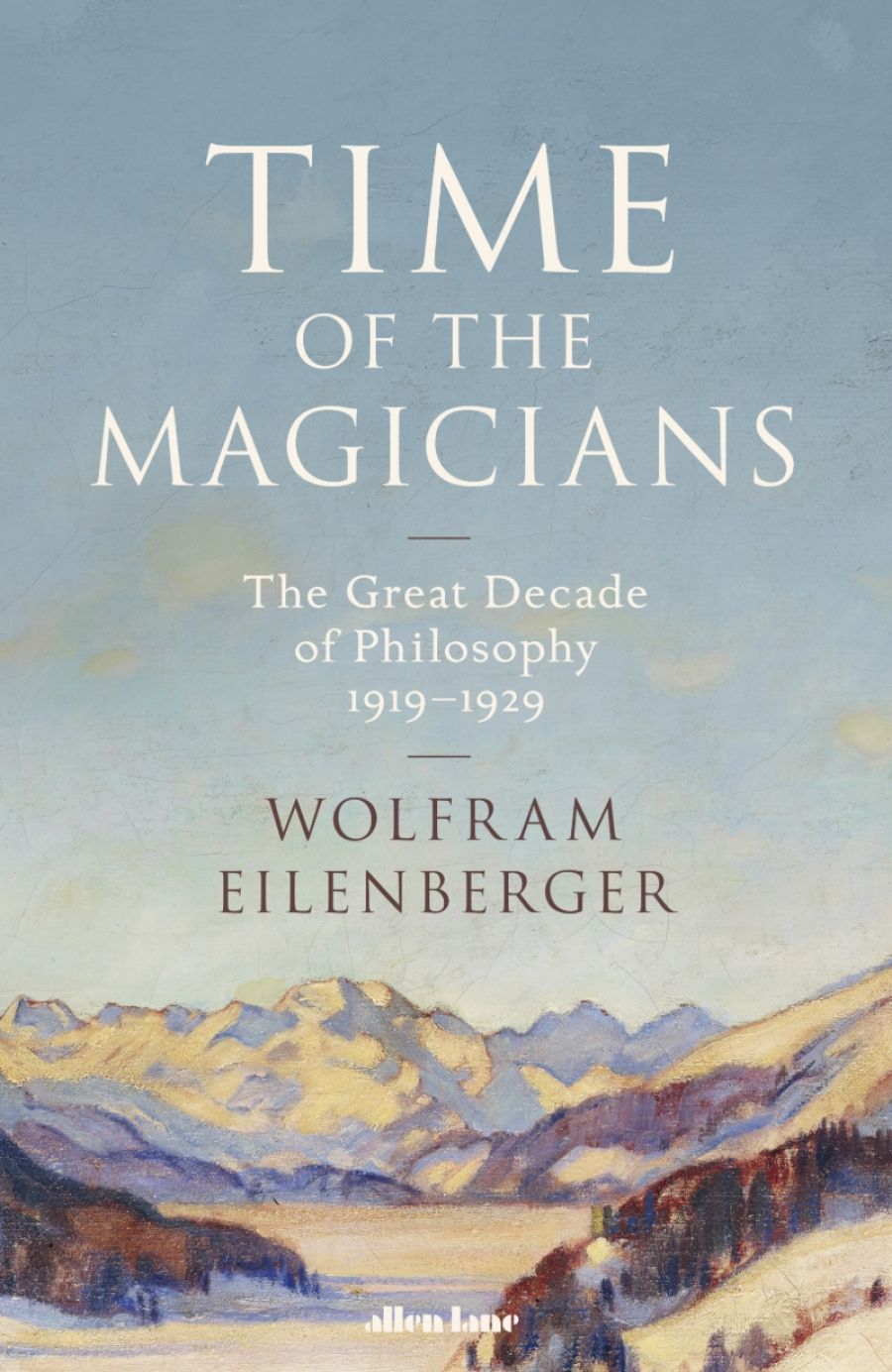
- Free Article: No
- Contents Category: Philosophy
- Review Article: Yes
- Article Title: Finding meaning
- Article Subtitle: A spellbinding look at four philosophers
- Online Only: No
- Custom Highlight Text:
Philosophers attending a conference in the Swiss resort of Davos in 1929 eagerly anticipated a debate between Ernst Cassirer, a celebrated member of the academic establishment and a supporter of progressive liberalism, and Martin Heidegger, whose radical break from tradition had impressed younger philosophers. For those who expected a clash of titans, the result was disappointing. There were no denunciations, no rhetorical bolts of lightning. The true parting of their ways came later, in 1933, when Cassirer, a Jewish supporter of the Weimar Republic, was forced out of his position and into exile, and Heidegger, now a member of the National Socialist Party, told students of Freiburg University to be guided by the Führer.
- Grid Image (300px * 250px):

- Book 1 Title: Time of the Magicians
- Book 1 Subtitle: The invention of modern thought, 1919–1929
- Book 1 Biblio: Allen Lane, $49.99 hb, 432 pp
- Book 1 Readings Link: booktopia.kh4ffx.net/oQXRm
These four philosophers – Cassirer, Heidegger, Benjamin, and Wittgenstein – are the ‘magicians’ who during the fateful decade 1919 to 1929 were finding their way in philosophy, pursuing their careers, and living their lives. Eilenberger is careful not to play favourites or to allow their later trajectories to influence his account of their lives and thought during this period. Nevertheless, Cassirer, a comfortable academic and the only one of the four who, as Eilenberger says, never had a nervous breakdown and whose sexuality was never an existential problem, tends to serve as a foil for the other thinkers, whose philosophies were more radical and who had fraught, and thus more interesting, personal lives.
Eilenberger strains to make connections between the ideas of these philosophers and tries, without much success, to present their ideas as responses to the crises of postwar Europe. But his book, a new translation of the 2018 German bestseller, is a spellbinding account of how four great philosophical minds answered basic questions: Who are we? How should we live? What is the role of philosophy in an age of science and technology?
The most radical answers came from Wittgenstein. His Tractatus Logico-Philosophicus, written while he was a prisoner of war and finally published in 1922, insists that sentences are meaningful only when they provide a logical picture of the facts of the world. All attempts to philosophise about the nature of language, the self, and the world, including, paradoxically, the sentences of the Tractatus itself, are meaningless. Eilenberger takes Wittgenstein to be implying that answers to our basic questions must be found in living our lives and through experiences that can’t be put into words.
Cassirer thought that humans find meaning and transcendence through the creation of symbolic languages, and during the decade he wrote a three-volume work tracing the connections between symbolic worlds of myth and science, and of religion and secular culture. The job of philosophy, in his view, was to chart the development of human thought. Heidegger rejected any form of transcendence. Humans, he argued in Being and Time – the work he struggled to complete during this decade – are finite beings thrown into the world who become authentic by squarely facing the fact of their death. Benjamin during the same period worked his way to an understanding of how technological as well as artistic creations reflect and embody a way of life and at the same time change our relation to the world.
Eilenberger provides an admirably clear account of the ideas of the four philosophers and how they developed in this period. But his aim is not merely to present their philosophical theories but also to explain how their thought developed in the context of their lives and their time.
At the beginning of the decade, we encounter Heidegger in his first academic position, having trouble with his marriage, and becoming a self-described ‘wild thinker’ in a Black Forest hut. Wittgenstein, believing that his Tractatus left no more to be said, but despairing of people’s ability to understand it, gives up his share of his Viennese family’s fortune and takes up a career as a country school teacher. Cassirer obtains a secure academic position in Hamburg and develops a symbiotic relationship with the Warburg Library, the private collection of the eccentric cultural historian Aby Warburg, in which books are ordered not by discipline but according to their ‘good neighbourliness’. Meanwhile, Benjamin, though desperate for an academic position that would free him from a controlling father, undermines his cause by writing essays that university assessors find unintelligible.
Being a philosopher is clearly no recipe for a happy life. Wittgenstein fails in his career as a country school teacher and returns reluctantly to Cambridge. Benjamin’s chaotic life, desperate loves, and fateful decisions push him into nervous collapse. Heidegger, described by his one-time lover Hannah Arendt as a man without a character, fails to find true companionship in his marriage, his affairs, or his friendships. Only Cassirer, the respectable bourgeois academic, lives a fulfilling life as a scholar and a family man. However, as the decade progresses, he and his wife are troubled more and more by growing anti-Semitism in Germany.
Philosophers are not magicians pulling ideas out of thin air. They build on the work of others. Heidegger was influenced by Edmund Husserl’s phenomenology. Wittgenstein used a method of logical analysis developed by Bertrand Russell and Gottlob Frege, and his aim was to solve problems that they posed. Both Cassirer and Benjamin were thoroughly grounded in the Kantian tradition. Eilenberger’s snapshot approach to history makes these philosophers larger than life. But no one who reads his engaging account of their lives and ideas is likely to mind.


Comments powered by CComment